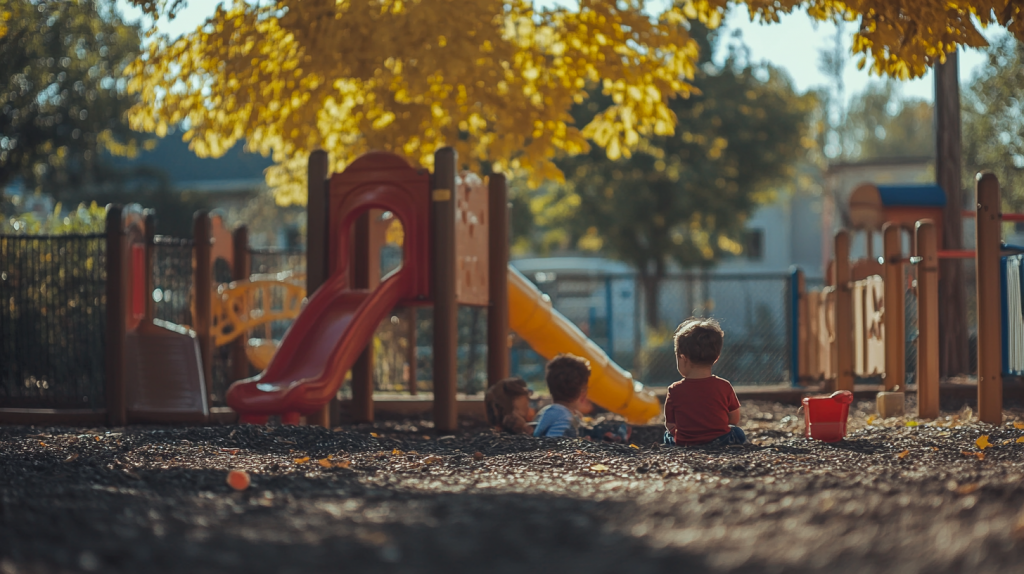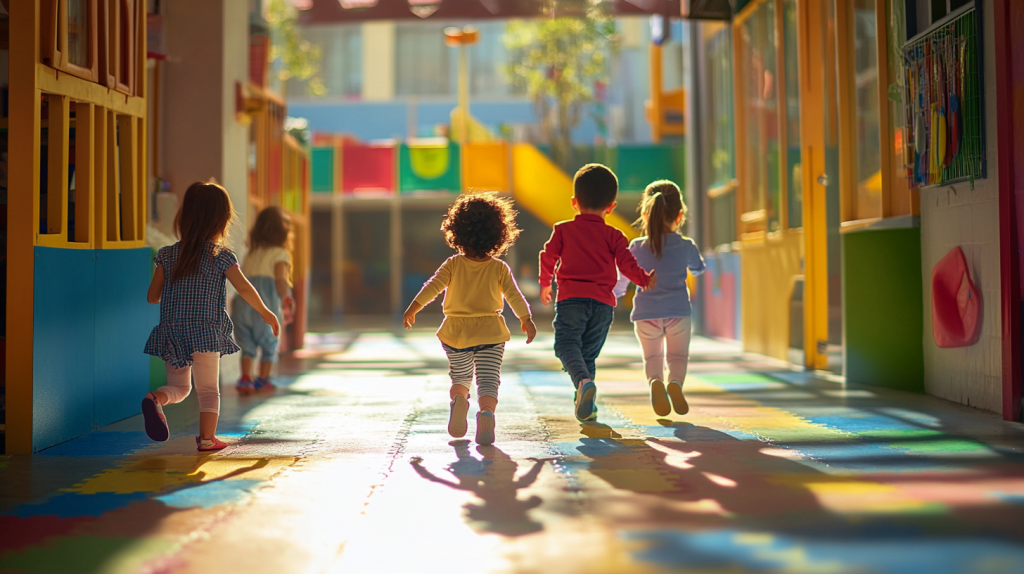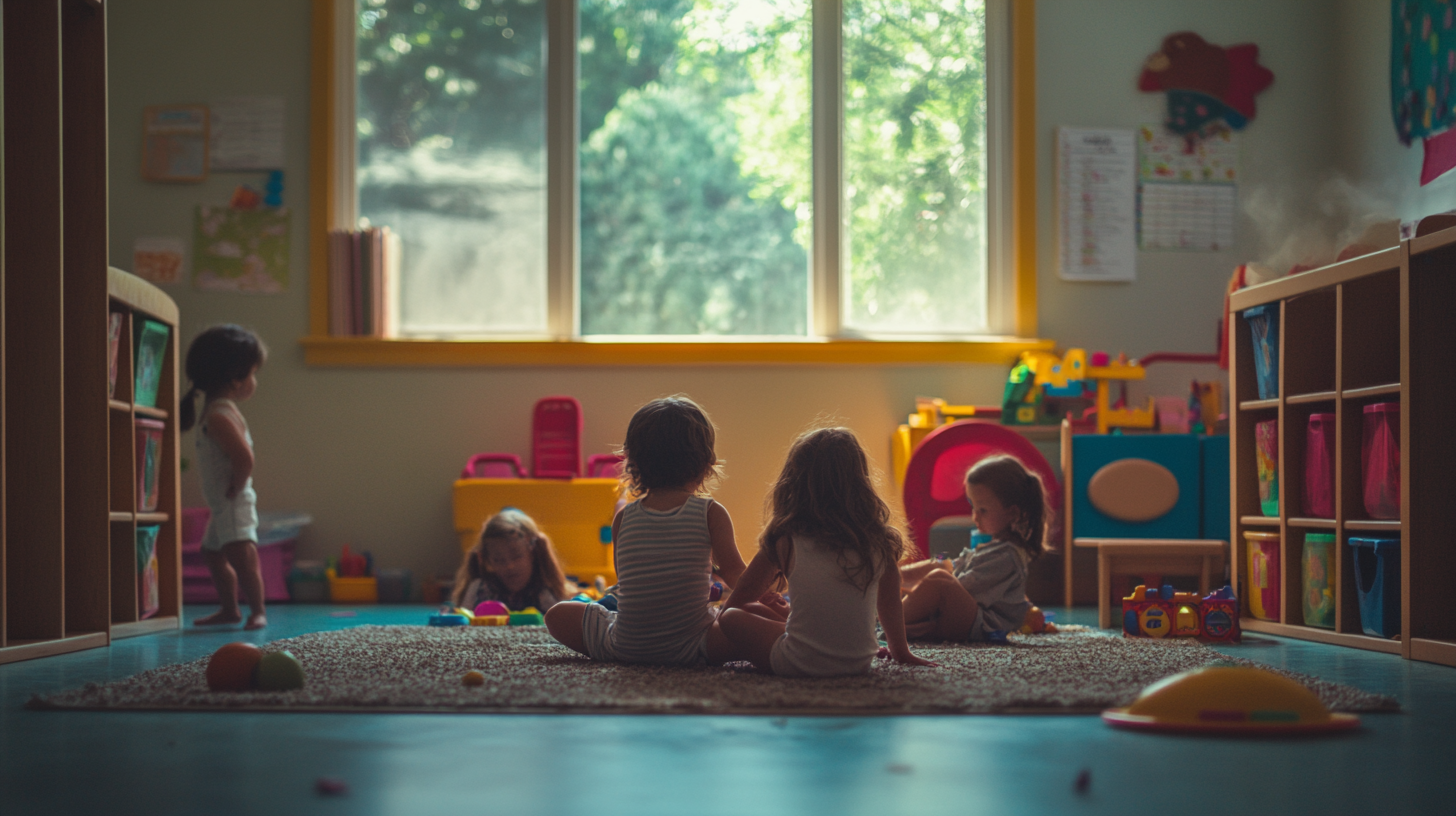Daycare readiness is not just about reaching a certain age. It’s a combination of emotional, social, and physical development that signals your child is prepared to spend extended periods away from home, interacting with peers and caregivers. Recognizing these signs can help you feel more confident about your decision and ensure that your child is set up for success.
Emotional Development
Emotional development plays a crucial role in daycare readiness. Children who have begun to understand their emotions and can express them healthily are better equipped to handle the dynamic environment of daycare. They should be able to identify feelings like happiness, sadness, or frustration and start learning appropriate ways to express these emotions, such as using words or creative outlets like drawing.
Social Development
Social development involves more than just the ability to play with others. It includes understanding social cues, sharing, taking turns, and cooperating in group activities. A child ready for daycare typically enjoys the company of other children and seeks opportunities to engage with them, demonstrating a willingness to participate in shared activities and games.
Physical Development
Physical development encompasses more than just running or jumping. It includes fine motor skills like holding a pencil or using scissors, as well as the stamina required to participate in various activities throughout the day. A child who is physically ready for daycare can engage in both quiet and active play without becoming excessively tired or overwhelmed.

Sign 1: Social Interaction Skills
A crucial indicator of preschool readiness is your child’s ability to interact with other children and adults. Observe how your child behaves in group settings. Are they comfortable playing alongside or with other kids? Do they show interest in group activities or games?
Developing Friendships
Children who are ready for full-time daycare often show a budding interest in forming friendships. They might talk about other kids they’ve met at the park or during playdates. These early social skills are essential for adapting to a daycare environment, where interaction with peers is a big part of daily activities. Additionally, children demonstrating the ability to share and take turns reflect their readiness for collaborative play and learning.
Communicating Needs
Another aspect of social readiness is the ability to communicate their needs effectively. Whether through words, gestures, or both, your child should be able to express when they are hungry, need to use the bathroom, or require help with something. This communication is crucial for caregivers to understand and meet your child’s needs, promoting a sense of security and independence.
Group Participation
Observe your child’s willingness to participate in group activities. Children ready for daycare often express excitement about joining group games or storytime sessions. Their ability to listen to instructions and follow along with the group reflects their readiness to engage in structured activities that are common in daycare settings.
Sign 2: Independence
Independence is a significant factor in determining full-time daycare readiness. A child who can perform basic tasks on their own is likely ready to handle the daycare environment.
Self-Help Skills
Look for signs that your child can dress themselves, manage bathroom needs, and wash their hands with minimal assistance. These self-help skills are crucial in a daycare setting, where caregivers manage multiple children at once. Additionally, a child who can feed themselves and understands basic hygiene practices is demonstrating a level of independence necessary for a daycare environment.
Decision-Making Abilities
Observe your child’s decision-making abilities. Can they choose between two activities? Do they exhibit preferences for certain toys or games? These small decisions reflect their growing independence and readiness for a structured daycare setting. Decision-making also includes problem-solving skills, such as figuring out how to build a block tower or deciding how to complete a puzzle.
Confidence in New Situations
Confidence in tackling new situations is another aspect of independence. A child ready for daycare often shows curiosity about new environments and people, displaying a sense of adventure rather than fear. They might not need constant reassurance when faced with unfamiliar settings, indicating their preparedness to explore and adapt to the daycare environment.
Sign 3: Emotional Maturity
Emotional maturity is another key aspect of preschool readiness. It involves understanding and managing their emotions, which is vital in a group environment.
Handling Separation
Assess how your child reacts to being separated from you. Do they remain calm and engaged when left with a trusted adult or babysitter? Children who can handle brief separations are often better equipped for the longer periods away from home that full-time daycare requires. They may express initial reluctance but quickly adapt, indicating their growing emotional maturity.
Coping with Transitions
Daycare involves many transitions throughout the day, from playtime to meals to nap time. A child ready for daycare will generally adapt well to these changes without excessive stress or tantrums. They might be able to follow a schedule at home, which translates to smoother transitions in a structured daycare setting.
Emotional Regulation
Observe your child’s ability to regulate their emotions. Can they calm themselves after being upset, or do they require adult intervention? Children who demonstrate emotional regulation skills are better prepared for the social dynamics of daycare, where they will need to navigate various emotions and interactions throughout the day.
Sign 4: Physical Stamina
Physical stamina is an often-overlooked aspect of full-time daycare readiness. The energy levels required to keep up with a day full of activities, both indoors and outdoors, are substantial.
Managing a Full Day
Observe your child’s energy levels throughout the day. Can they engage in active play without becoming overly tired or cranky? Do they nap regularly and wake up refreshed? A child who can handle a full day of activities is typically ready for the demands of daycare. Their ability to participate in both structured and free play sessions without fatigue indicates their physical preparedness.
Following a Routine
Being able to follow a routine is another sign of readiness. If your child is accustomed to a structured day at home, they are more likely to adjust smoothly to the daycare schedule. Consistency in daily activities such as mealtime, playtime, and rest time helps them anticipate and adapt to the daily rhythm of daycare.
Engaging in Physical Activities
Children ready for daycare often show enthusiasm for physical activities such as running, jumping, or climbing. They enjoy participating in both indoor and outdoor play, which are integral parts of the daycare experience. Their ability to engage in physical activities without excessive fatigue demonstrates the stamina needed for a full day at daycare.

Sign 5: Curiosity and Eagerness to Learn
A child who is eager to explore and learn new things is usually ready for preschool. This curiosity drives them to participate in the diverse activities offered at daycare.
Engaging in New Experiences
Notice how your child reacts to new experiences or environments. Are they curious and eager to explore, or do they cling to you and resist? A child ready for daycare will often show enthusiasm for trying new things and participating in group activities. Their willingness to engage with new experiences reflects their readiness to embrace the diverse learning opportunities at daycare.
Interest in Learning
Children who are interested in learning new skills, such as counting, identifying colors, or simple problem-solving, will benefit from the structured learning environment that daycare provides. They often show curiosity about the world around them, asking questions and seeking explanations, which indicates their readiness to absorb new information and skills.
Exploring Creativity
Children ready for daycare often exhibit creativity in their play. They might enjoy drawing, building with blocks, or imaginative play, indicating their eagerness to explore and experiment. This creative engagement is a sign of their readiness to participate in the varied and enriching activities available in a daycare setting.
Preparing Your Child for Daycare
If your child exhibits most of these signs, they are likely ready for full-time daycare. However, it’s also essential to prepare them for this transition to ensure a smooth adjustment.
Gradual Introduction
Consider a gradual introduction to daycare by starting with part-time attendance or short visits. This approach allows your child to become familiar with the environment and routine at their own pace. Gradual exposure helps build comfort and confidence, reducing anxiety associated with starting full-time daycare.
Open Communication
Talk to your child about what to expect at daycare. Discuss the activities they’ll participate in, the friends they’ll make, and the caregivers who will look after them. Open communication can alleviate anxiety and build excitement about the new experience. Involving your child in conversations about daycare can help them feel more in control and prepared for the transition.
Building a Routine at Home
Establishing a routine at home that mimics the daycare schedule can ease the transition. Include similar meal times, nap times, and play sessions to help your child adjust to the new structure. Consistency between home and daycare routines provides a sense of security and familiarity, making the transition smoother.
Conclusion
Making the decision to enroll your child in full-time daycare is a significant step that requires careful consideration. By observing the signs of readiness, such as social interaction skills, independence, emotional maturity, physical stamina, and eagerness to learn, you can feel confident that your child is prepared for this new chapter.
Remember, every child is unique, and readiness can vary. Trust your instincts and consult with caregivers or educators if you’re unsure about your child’s readiness. With the right preparation and support, your child will thrive in their new daycare environment. Embrace this transition as an opportunity for growth and development, knowing that you are providing your child with valuable experiences that will shape their future.
Ready to Enroll Your Child in Daycare?
If you recognize these signs of readiness in your child and are considering full-time daycare, we invite you to reach out to Discovery Time Learning Center. Our dedicated team is here to support you and your child through this important transition.
Contact Us Today!
For more information about our programs, enrollment process, or to schedule a visit, please contact us. Let us help your child embark on their exciting journey of learning and growth!



